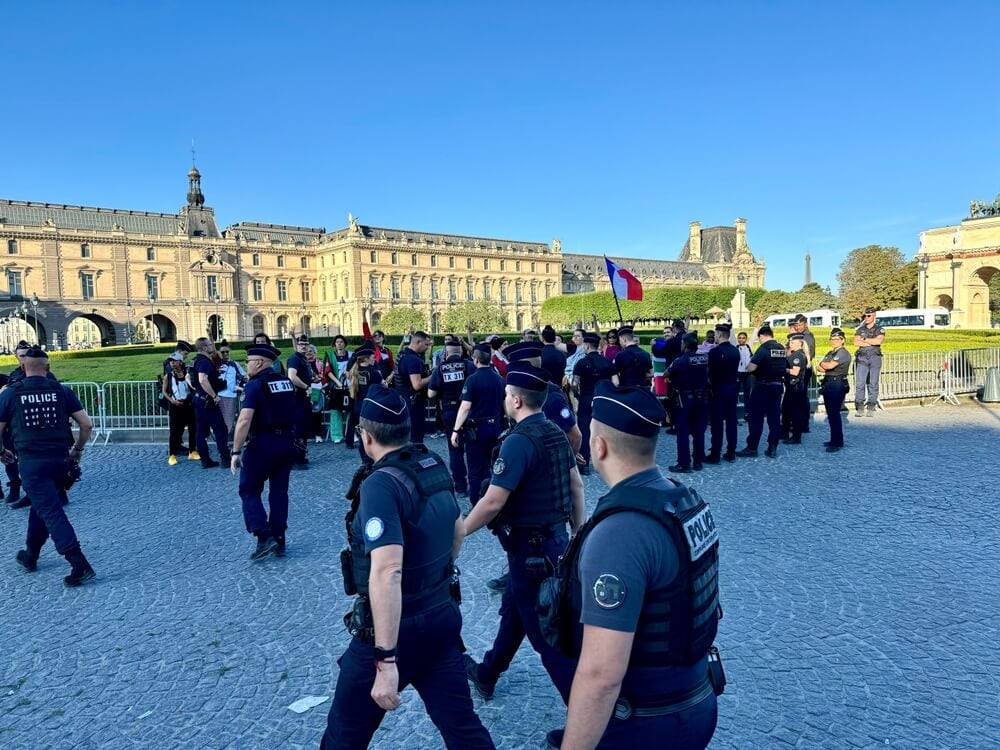Polish Prime Minister Donald Tusk announced this week that his country will bid for the Olympic Games in 2040 or 2044.
Perhaps he just wanted to console the nation that won only 10 medals at the recently concluded Games in Paris, which is Poland's worst result since 1956.
However, Poland's ambitions fit in with the trend of increasing interest among the world's major cities and their governments to organise the biggest global sporting and media event.
Changes in the Olympic bidding and selection model have fuelled this trend, but regardless, the pool of cities that can host the increasingly growing Games seems to be shrinking. This trend is particularly noticeable given the high standards Paris has set and Los Angeles is expected to meet in four years.
The geography of the previous Olympic Games hosts heavily favours the northern hemisphere, particularly its western part.
If we count the hosts of the next Games up to 2032, most will have taken place in Europe (33), North America (14), Asia (8), and Australia (3), with only one in South America and none in Africa.
Based on the candidates' published ambitions thus far, the Asian organisers could only slightly alleviate this huge imbalance, both along the north-south and east-west lines.
A new way of choosing a host
In the race to host the next Summer Olympics in 2036, two of the four candidates are from Asia: India and Indonesia. The failed bids for the 2016 and 2020 Games have not discouraged Qatar and the capital Doha, so they are also preparing a bid for 2036 as the third possible Asian group host.
Chile, which is preparing a candidacy for 2036, and Egypt, which would become the first African country to host the Olympic Games sometime in the future, will attempt to rectify the significant continental imbalance regarding the previous organisers.
In response to the numerous bid cancellations, the International Olympic Committee changed the hosting allocation model five years ago.
Brisbane was the only candidate selected to host the 2032 Olympic Games with virtually no competition
The previous approach meant that candidates invested a lot of money, often more than $100 million, in the bid project itself, and success depended on the votes of the IOC members. Corruption frequently tainted this model, and its high cost discouraged potential bidders, resulting in a decline in the number of bids.
Brisbane was the only candidate selected to host the 2032 Olympic Games with virtually no competition because it was the first time the new model had been used. This bidding process does not require significant investment, but the IOC committee retains the authority to evaluate the potential of each possible candidate.
Asian competitors
The powerful Asian economies believe they are missing a marketing "jewel" in the form of organising the Olympic Games to confirm their long-term high growth.
Qatar is the most adamant in this regard, and it wants to reach the highest level and host the Olympics after organising the 2022 World Cup.
However, the logic of such candidates is at odds with the IOC's strategy for selecting new hosts. As an important prerequisite, it requires that the hosts already have a developed network of sports facilities so as not to run the risk of so-called "white elephants," gigantic stadiums and halls that stand empty after the Olympic Games and represent an incurable financial loss.
Asia has the best chance of hosting the athletes in 2036
This criterion undoubtedly reduces the chances of all fast-growing economies, especially in East Asia. Many of them would not regret spending money, not even debt, to organise the Olympic Games, as they know how effective it is to create a positive image.
During the Games in Paris, Nita Ambani, a member of the IOC and member of one of India's richest families, said that hosting the Olympics was "a dream that belongs to 1.4 billion Indians."
Both she and other contenders know that after Paris, Los Angeles, and Brisbane, Asia has the best chance of hosting the athletes in 2036, so they will spare no effort (and no money) until the future host is decided by 2029 at the latest.
Money is not decisive
But this will no longer depend solely on the financial willingness of the potential host. The Paris Games have demonstrated the complexity of organising such a large-scale event and, more importantly, the new priorities set before the hosts.
Investment in security, for example, increased dramatically after the attack on the USA on September 11, 2001. While Sydney had security costs of around $250 million the year before, the next host, Athens in 2004, spent around $1.5 billion for the same purpose. Each subsequent Olympic Games will maintain this amount on average.
 Investment in security increased dramatically after the attack on the USA on September 11, 2001
Investment in security increased dramatically after the attack on the USA on September 11, 2001
But regardless of these high costs, the Games host must bring, along with its bid, the strong perception of a safe city and country in order to hope for millions of guests from around the world. This value is difficult to quantify, particularly in monetary terms, as it involves an emotional connection.
As the final organiser, Paris has insisted throughout the duration of the Games on respect for diversity, tolerance, and openness to the world, all of which France has given to the world throughout history.
The head of the organising committee, Tony Estanguet, said at the closing ceremony of the Paris Games that they were the first to achieve full equality between male and female participants.
Paris set the standard for this aspect of the Games. Can the next hosts, who are already in the running for 2036 and 2040, promise to uphold or improve it?
Or will they achieve the level of economic, environmental, and social sustainability of the Games that Paris has already achieved and that Los Angeles and Brisbane will undoubtedly achieve?